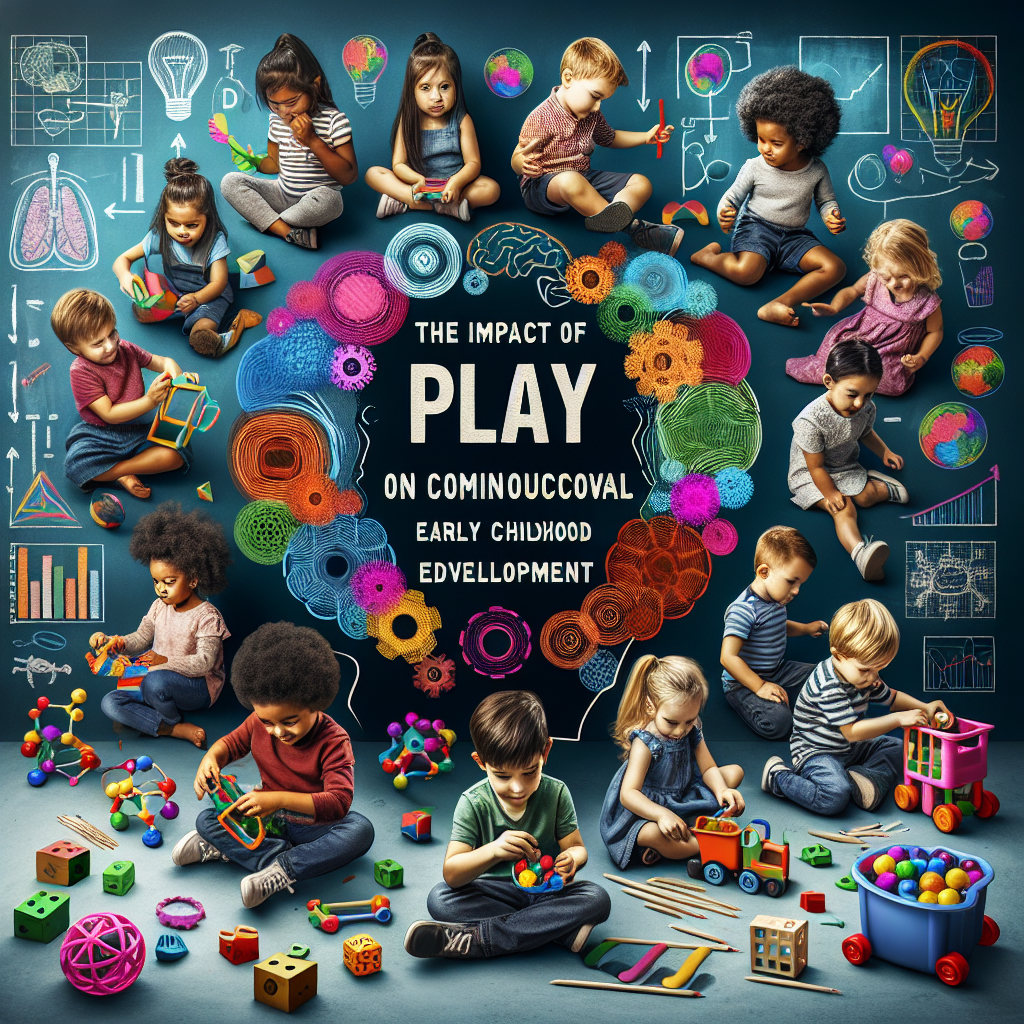Play is an essential component of early childhood education as it has a profound impact on cognitive development. When young children engage in play, they are actively using their minds to explore and make sense of the world around them. Play allows children to engage in problem-solving, critical thinking, and creativity, all of which are important skills for cognitive development. In this article, we will explore the ways in which play impacts cognitive development in early childhood education and answer some frequently asked questions about the topic.
One of the primary ways in which play impacts cognitive development is through the development of executive function skills. Executive function skills are a set of mental processes that help children plan, organize, and control their behavior. These skills are crucial for academic success and are closely linked to cognitive development. When children engage in play, they are constantly making decisions, solving problems, and thinking critically, all of which help to develop their executive function skills.
Play also helps to foster creativity in young children. When children engage in imaginative play, they are using their minds to create new worlds, scenarios, and characters. This type of play is essential for developing divergent thinking skills, which are crucial for creative problem-solving. By engaging in imaginative play, children learn to think outside the box, come up with new ideas, and think creatively, all of which are important skills for cognitive development.
Furthermore, play helps to develop children’s social and emotional skills, which are closely linked to cognitive development. When children engage in play with their peers, they learn to communicate, cooperate, and collaborate. They also learn to regulate their emotions, resolve conflicts, and empathize with others. These social and emotional skills are essential for cognitive development, as they help children to navigate social interactions, work effectively with others, and regulate their emotions in stressful situations.
In addition, play helps to develop children’s language and literacy skills. Through play, children have the opportunity to listen, speak, and communicate with others. They can practice using language in different contexts, develop their vocabulary and grammar skills, and learn to express themselves effectively. Play-based activities such as storytelling, role-playing, and pretend play all help to develop children’s language and literacy skills, which are crucial for cognitive development.
Overall, play has a profound impact on cognitive development in early childhood education. By engaging in play, children are able to develop executive function skills, creativity, social and emotional skills, and language and literacy skills, all of which are crucial for cognitive development. Play allows children to actively engage their minds, explore new ideas, and make sense of the world around them, leading to enhanced cognitive development.
FAQs
Q: How can teachers incorporate play into the curriculum in early childhood education?
A: Teachers can incorporate play into the curriculum by setting up play-based learning centers in the classroom, such as a dramatic play area, a block area, and a sensory table. Teachers can also incorporate play into lessons by using games, puzzles, and hands-on activities to engage children in learning.
Q: What are some benefits of play for cognitive development in early childhood education?
A: Some benefits of play for cognitive development include the development of executive function skills, creativity, social and emotional skills, and language and literacy skills. Play allows children to actively engage their minds, explore new ideas, and make sense of the world around them.
Q: How does play help children develop critical thinking skills?
A: Play helps children develop critical thinking skills by allowing them to solve problems, make decisions, and think creatively. Through play, children learn to think critically, evaluate different options, and come up with innovative solutions to problems.
Q: How can parents support play-based learning at home?
A: Parents can support play-based learning at home by providing children with access to a variety of toys, games, and activities that encourage imaginative play, problem-solving, and creativity. Parents can also engage in play with their children, ask open-ended questions, and encourage their children to explore new ideas and concepts through play.




Leave A Comment